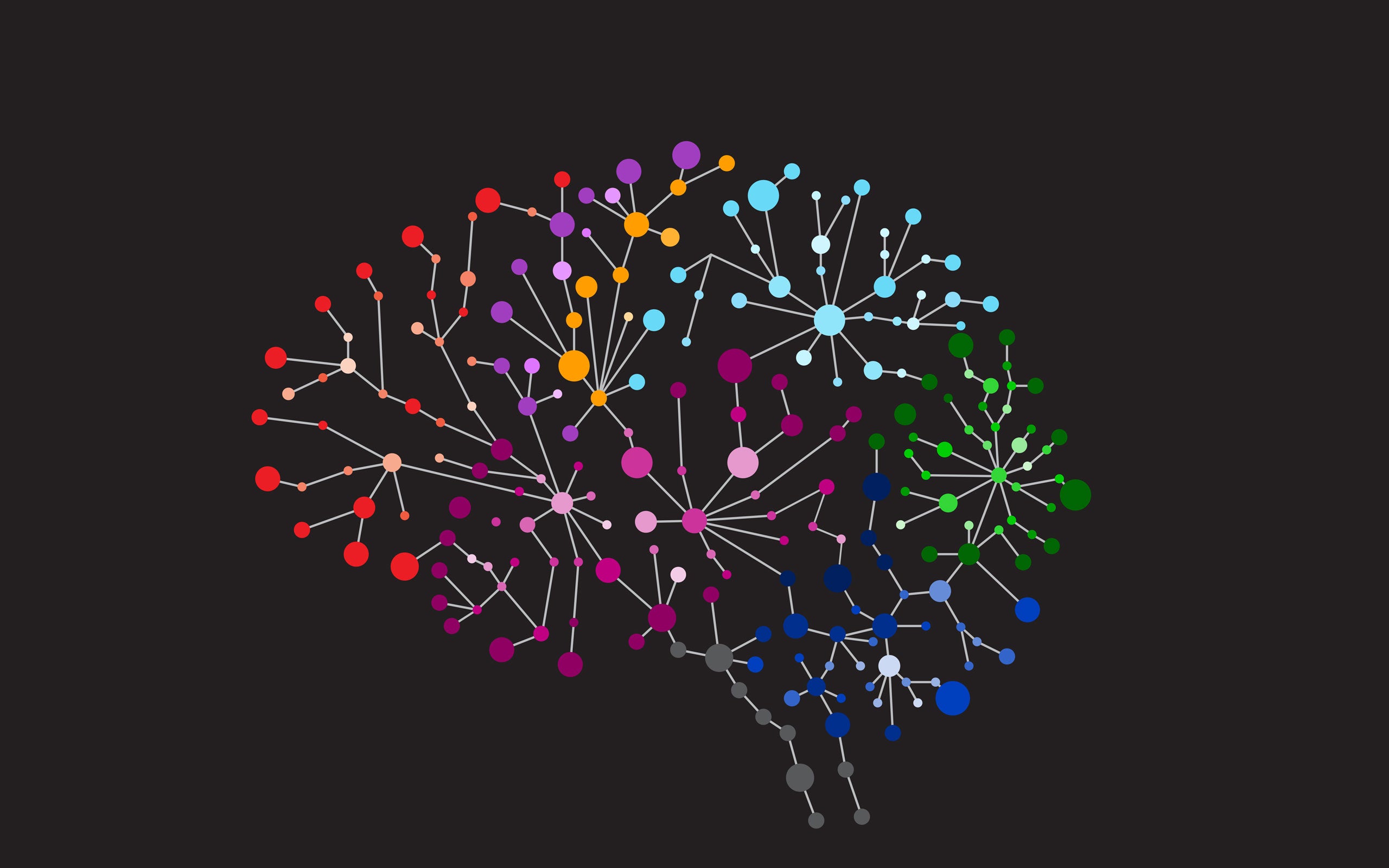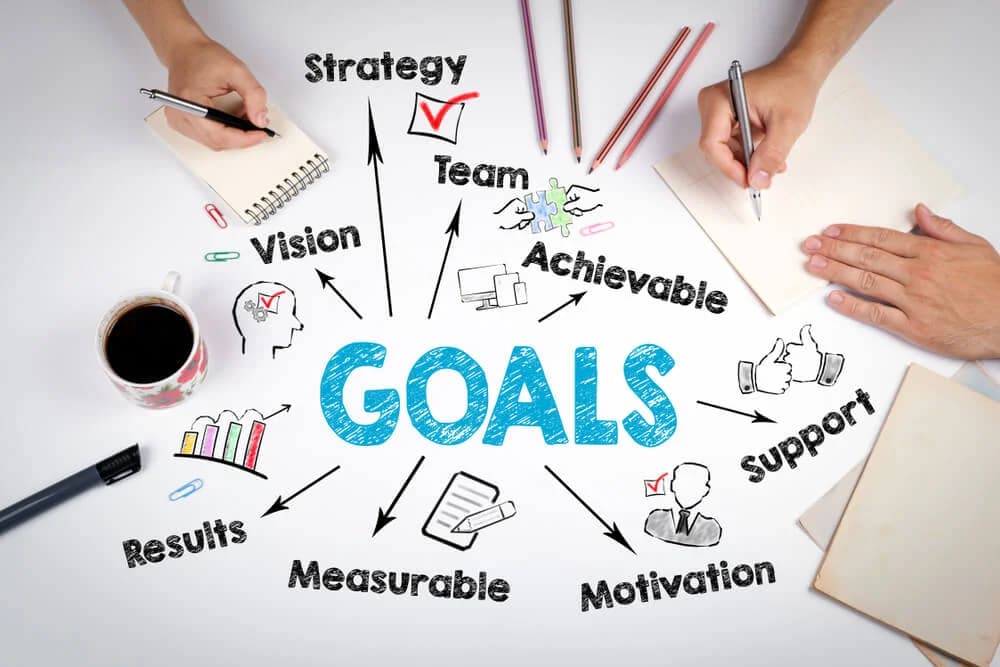Literature Review (2nd Paper)
Mentality helps Achieve Goals
How many goals have you set in your life? Hundreds? Thousands? Even more? How many of these goals have you achieved? Roughly 70 percent of people fail to achieve the goals they have set for themselves; for instance: some quit before they’ve even begun the first step out of fear, some were trolled out of success, or stopped because they became the loathing image they despise. Even though many individuals struggle to achieve their goals without falling into societal views, they distractingly stop them from reaching the setout goal. Remember always “Go Get Your Blessings...Unapologetically.” As a young adult who struggles with following through with goals, I question if the mentality we have as individuals is the result of our failed achieved goals?
Review of Literature
Is Achieving Goals Impacted by Neuroscience?
The article "Using Applied Neuroscience to Achieve Goals In 2020 and beyond" mentions how challenging it is to break old habits and acquire new ones. Research shows that "80% of individuals" dismiss their "New Year's resolutions" by January, "while only 8% maintain long-lasting success". Maloney believes 80% of people assume that they have failed to change because they "do not have full control of their actions." However, Maloney stated: if we first "invest time in observing and understanding our internal drivers and reactions," we can then use that "insight to devise better, tangible steps" we can take toward change – and build "neural pathways that will facilitate the outcomes we desire over the long-term."
How do identifying triggers and making micro-goals contribute to the 8% success rate? Identifying triggers can help you "better anticipate them and develop coping strategies in environments you can't control." For example, people think a good strategy for weight loss is to "simply remove all junk food from their homes." But they can run into "trouble at work, restaurant, where they have less or no control." We cannot change people or situations that trigger us, but we can learn to "marry a healthier response to a trigger" by "identifying and learning when to anticipate it." "Aristotle said, "We are what we repeatedly do. Excellence, then, is not an act but a habit."... Instead of tracking your progress toward "a goal or resolution with big milestones," try setting "micro-goals with reward structures that more frequently link action to satisfaction".... and "maintaining consistency is all about establishing the right cadence." These two factors hold a significant role in individuals' success. Therefore, anyone who desires to be a part of the 8% must apply to identify triggers and make micro-goals to their routine to achieve their long-term life goals. Overall, this article expresses how valuable Neuroscience is to achieving goals. I agree everyone must apply neuroscience to their habits to achieve their long-term life goals.

https://www.uri.edu/features/neuroscience/
Is Inner Fitness a Gateway to Lasting Success?
The article "Hollywood Actress Tina Lifford Shares How Critical Inner Fitness Is to Achieving Goals" describes Tina Lifford's views on the importance of Inner Fitness. Lifford helps individuals who seek help since Lifford believes by "2030, the biggest health scare the nation will face its depression" (Robinson). Robinson states that As an Inner Fitness trainer, Lifford created a "wellbeing initiative that teaches effective, reliable practices for navigating your past, present and future with resilience, power, and wisdom." In addition, Lifford's outstanding career, which shows no signs of slowing down, is the ideal blueprint of "How Critical Inner Fitness Is to Achieving Goals."
How did Lifford master her goals using inner fitness, and how is it relevant to others? Lifford has always been intentional about her dreams. She noticed a "pattern of writing down her next move, working towards it, and accomplishing specific objectives." Through "tracking her routine, she discovered that she had been working on her inner fitness, developing a fit mindset." This is considered the interior self; that self requires time and attention. The internal self is defined as our mental, emotional and spiritual experiences. Therefore, take care of your internal self for your exertional self to grow as well. I agree that inner fitness works because once individuals master control over their inner self, a positive change of mentality- they'll be able to achieve any goal.
What are the Steps to Make Your Vision a Reality?
According to the article "Achieving Goals: Four Steps to Make Your Vision A Reality," Patterson discusses the Unfortunate truths of many individuals not knowing how to create careers that bring wealth or happiness. Typically, individuals have a vision of what success looks like but leave it at that and do nothing about it. Many daydreams about what their lives could be like and how the other half lives. Patterson explained the journey to "achieving your goals and being successful is the same." By taking "appropriate action" with the "right mindset, you can move in the right direction" from "where you are to where you want to be."
How does establishing a community and being consistent relate to achieving goals? When building a community, whether online or offline, "you're creating an audience who comes to know, like and trust you"... People often think that "information is power and that information should be withheld, but by offering information to your audience for free, you then become an expert figure." "Rome wasn't built in a day"... So many people "give in and fall short of success. Balance and consistency are key. Make a plan and stick to it." This means committing to achieving your goals, and by making that commitment and showing up you'll be the first others referred to when in need of help. Therefore, once you change your mindset and follow the steps of creating a successful career, you'll be helping yourself and others. I agree with this article because taking action is the thing that often separates those who succeed from those who do not: without effort, nothing happens.
 https://www.breathehr.com/en-gb/blog/topic/company-culture/five-goals-for-your-business-company-culture
https://www.breathehr.com/en-gb/blog/topic/company-culture/five-goals-for-your-business-company-culture
Overall, some lose track of why they began their journey to success they're on; however, the more awareness brought to this topic, the fewer people will struggle to achieve their goals without falling into societal views distractingly stop them from reaching the setout goal. Such as listing Micro-goals for themselves, learning their triggers, applying Neuroscience to their daily habits, while staying consistent, and severing/ establishing their communities Therefore, everyone needs to "Go Get Their Blessings...Unapologetically” by changing their mentality.
Works Cited
Maloney, Laura. "Using Applied Neuroscience to Achieve Goals In 2020 And Beyond." Forbes, 27 Dec. 2019, www.forbes.com/sites/forbescoachescouncil/2019/12/27/using-applied-neuroscience-to-achieve-goals-in-2020-and-beyond/?sh=7b8ae11cd63e\. Accessed 1 Mar. 2022.
Patterson, Rebecca. "Achieving Goals: Four Steps to Make Your Vision A Reality." Forbes, 2 Apr. 2020, www.forbes.com/sites/forbescoachescouncil/2020/04/02/achieving-goals-four-steps-to-make-your-vision-a-reality/?sh=3bba97063944. Accessed 1 Mar. 2022.
Robinson, Cheryl. "Hollywood Actress Tina Lifford Shares How Critical Inner Fitness is to Achieving Goals." Forbes, 7 Dec. 2021, www.forbes.com/sites/cherylrobinson/2021/12/07/hollywood-actress-tina-lifford-shares-how-critical-inner-fitness-is-to-achieving-goals/?sh=312bc5113d49. Accessed 1 Mar. 2022.

Comments
Post a Comment